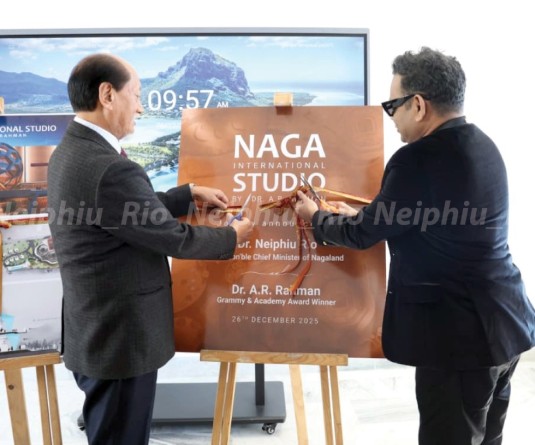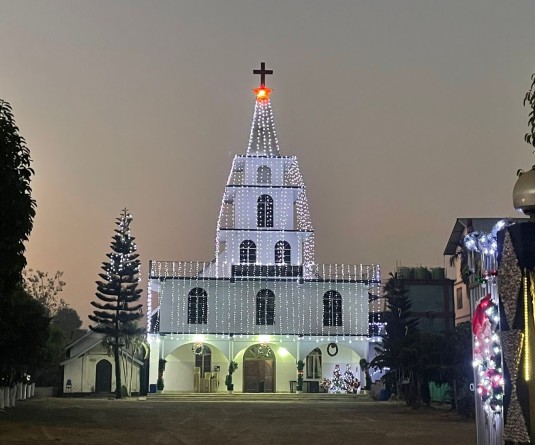Participants attending the workshop on Educational Evaluation for Secondary Teacher Educators of Nagaland held at Unity College of Teacher Education, Dimapur.
.jpg)
Dimapur, November 20 (MExN): A two-day workshop on Educational Evaluation for Secondary Teacher Educators of Nagaland concluded here on Wednesday.
The event, held from November 18 to 19, was organised by the Mokokchung College of Teacher Education (MCTE) in collaboration with Unity College of Teacher Education (UCTE), Dimapur which hosted the programme. It was sponsored by the state Department of Higher Education.
The workshop aimed to enhance competencies in outcome-based assessment, learning outcome formulation, blueprint preparation, teacher-made tests, and question paper design. It sought to address long-standing gaps in evaluation practices in teacher education institutions across the state, a press release said.
.webp)
The inaugural address-cum-orientation was delivered by Dr T Alemla Longkumer, Programme Coordinator and Principal, MCTE. She underscored the centrality of evaluation in the educational process and stressed the need for collective action toward a more uniform and meaningful evaluation system. She highlighted the urgency of moving away from examination-driven, rote-based practices and emphasised the shift toward higher-order thinking.
“This workshop,” she noted, “marks the beginning of rethinking evaluation through a more meaningful, productive, and outcome-oriented lens.”
Dr Akala Longkumer, Principal, UCTE, delivered the welcome address and described the opportunity to host the workshop as humbling. She spoke warmly about collaboration among sister institutions, adding that such partnerships echo the values of unity and shared responsibility in teacher education.
.webp)
Day 1 featured technical sessions on learning outcomes and assessments, teacher-made tests, and 2D blueprint development. Participants engaged in hands-on activities such as framing varied question types and drafting blueprints aligned with learning objectives.
A discussion hour highlighted the need for mindset change, with Dr Bendangyapangla describing teacher education as a “man-making profession” that demands thoughtful evaluation practices.
Day 2 advanced into more specialized dimensions of educational evaluation with guided practices on 3D Blueprint construction; design of marking schemes & scoring keys; techniques for assembling balanced question papers; and question-wise analysis. Participants also analysed sample question papers and created complete blueprints, applying concepts learned during the workshop.
In a reflective session led by Dr Elizabeth Walling, she emphasised the need for uniformity in teacher-made tests across institutions and encouraged the inclusion of application-based questions to enhance assessment quality and discourage rote learning.
.webp)
The valedictory session, led by Dr Toreiphi Mungleng, featured reflections from participants and resource persons.
One participant described the workshop as “fruitful and enlightening,” another called it “the beginning of 66 days of learning evaluation,” and a third shared that it clarified many challenges in current practices. An expert remarked that evaluation must be continually honed, stating, “What we teach is guided by the questions we set.”
The organizing committee acknowledged the Department of Higher Education, Government of Nagaland for sponsoring the workshop.
Facilitators included Dr T Alemla Longkumer, Kerilhusa Peseyie, Tiajungla, Mathiba Kichu, Dr Bendangyapangla, and Dr Elizabeth Walling, each contributing expertise in different aspects of assessment design.




.jpg)

